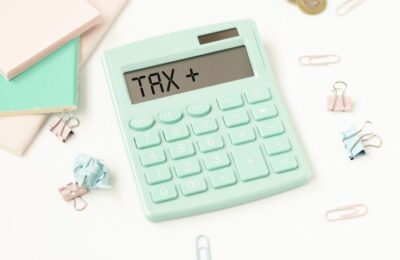Buying an electric car via your limited company can be a smart move financially, particularly if you plan to use it for personal journeys as well. It’s therefore not surprising that many business owners now want to learn more about electric cars and tax.
A recent real life example makes a good case in point.
A client of mine decided to buy a £100,000 Porsche for use as a company and personal vehicle. Because the car was 100% electric (not a hybrid) and therefore classed as a zero emissions vehicle, it attracted a benefit in kind rate of only 2% for personal use.
Therefore, my client had to declare a £2,000 benefit in kind on his Self-Assessment Tax Return, which was then taxed at 40%. The cost to him, therefore, was £800 per year.
The company itself also had to pay Class 1A National Insurance on the benefit in kind. At a rate of 15.05%, this meant the annual cost to the firm was £301.
But why buy the car via the company? The simple reason is that the £100,000 cost price can be deducted as a capital allowance. Electric cars with zero CO2 emissions qualify as an ‘enhanced capital allowance’, which is a type of first year allowance. What this meant in practice was that his company could deduct the full cost of the car from its pre-tax profits.
So, to recap:
- The company buys a £100,000, fully electric Porsche
- It can deduct the full cost from its pre-tax profits
- The car could be used for personal as well as business purposes as long as they and the company both pay tax on the benefit in kind.
- The annual cost to the employee who uses the car is £800
- The yearly cost to the company was £301.
Electric cars and tax breaks – potential pitfalls
If you want to take advantage of the same tax breaks, you need to make sure you understand the rules. Not doing so can lead you to make some costly mistakes.
In particular, it’s worth noting the following things:
- The car must be new and unused.
- The car must have zero emissions. In practice, this means the car needs to be fully electric.
- The car has to be owned by the company. If you want to use it for personal reasons, that’s fine as long as you have the company’s agreement. This usually causes no problems in small companies, particularly if they are family owned. However, the company has the final say on who uses the vehicle and whether it is kept or sold.
What happens if I buy a second-hand or hybrid electric car?
If you buy a second-hand electric car, it does not qualify for the enhanced capital allowance. This means you can’t deduct 100% of the cost against your pre-tax profits in the first year.
Instead, you can claim an annual main rate allowance of 18% of the car’s value. The same is true if you have a new or second-hand car with emissions of 50g/km or less. If you buy either a new or second-hand car with emissions over 50g/km, then you benefit even less. In these cases you can claim only a special rate allowance of 6% of the car’s value each year.
If you choose a hybrid car, you also get taxed more on the benefit in kind. For hybrid cars, the rate depends on two factors: CO2 emissions and range. The table below lists the tax rates between 2022 and 2025.
| Cars registered from 6 April 2022: | ||||
| CO2 (g/km) | Electric range (miles) | 2022-23 (%) | 2023/24 (%) | 2024/25 (%) |
| 0 | N/A | 2 | 2 | 2 |
| 1-50 | >130 | 2 | 2 | 2 |
| 1-50 | 70-129 | 5 | 5 | 5 |
| 1-50 | 40-69 | 8 | 8 | 8 |
| 1-50 | 30-39 | 12 | 12 | 12 |
| 1-50 | <30 | 14 | 14 | 14 |
To return to our original example, if the £100,000 car had CO2 emissions of under 50g/km, but an electric range of under 30 miles, my client would have paid 40% tax on 14% of the list price. In other words, he’d have paid £5,600 in tax rather than £800.
For cars with emissions over 50g/km, the rates rise incrementally higher. At the top of the scale, if you buy a car with emissions over 160g/km, you’ll be paying tax on 37% of the list price. For a £100,000 car, that would be a tax bill of £14,800
Coming up – leased electric cars and tax
As you’ve seen, buying a new, fully electric car via your limited company can significantly reduce your tax bill. However, leasing an electric car can also make good financial sense, as can acquiring one via a salary sacrifice scheme. We’ll be looking at both of these scenarios in an upcoming blog post but if you’d like advice on the best way of investing in company cars, please do give your THP account manager a call.
About Mark Ingle
Owner-manager business specialist, Mark Ingle is key to building relationships with clients at the Chelmsford office. “I like to see clients enterprises grow and succeed.” Mark explains, “The team here has a lot to offer and I can see a lot of new businesses responding to that.”
Having worked for accountancy practices in London and Essex, Mark has worked with a range of companies varying in size. For Mark, THP stands out for its “local firm approach with the resources of a larger practice.”
Although a keen traveller, Mark is focused on giving his clients at THP the highest service, “Right now, I aim to help the clients we have to the best of my ability which will help me attract more of the right clients in the future.”
Mark’s specialist skills:
- Annual and Management Accounts
- Tax and VAT
- Strategy and Business Planning
- Marketing and Sales
- Business Development












